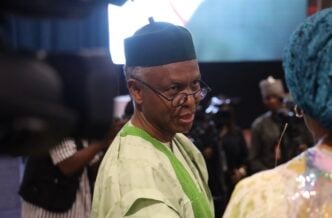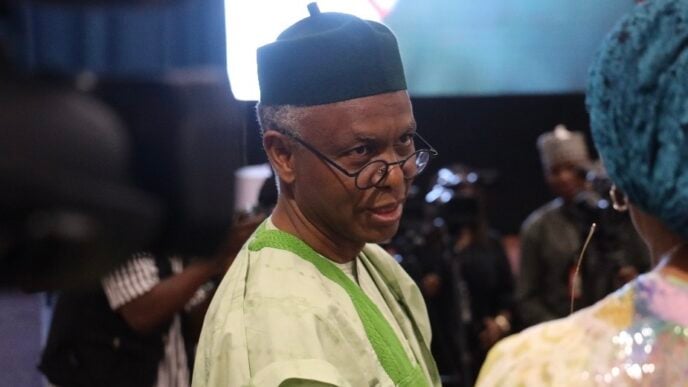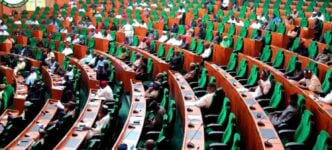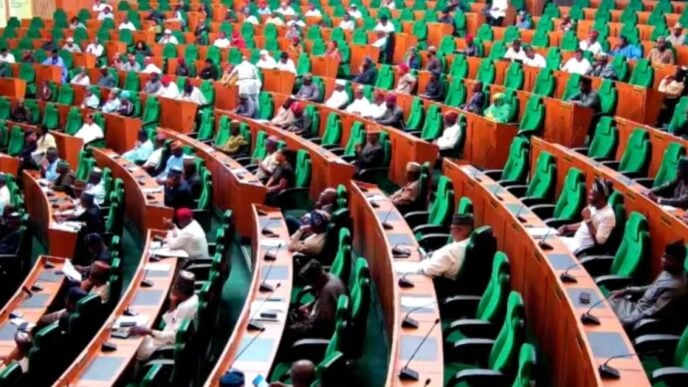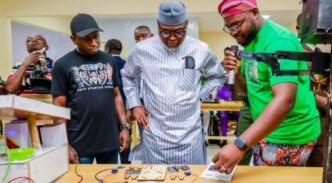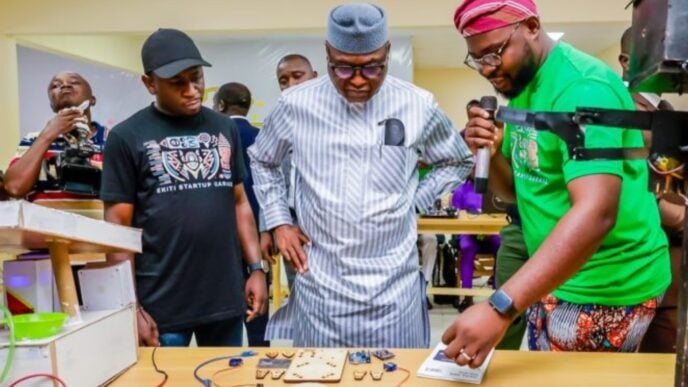BY CHIONYE HENCS ODIAKA
As Nigeria approaches the 2027 general election, the political atmosphere is again filled with bold declarations and dramatic promises. Among the most controversial is the pledge by some opposition presidential aspirants to serve only one term if elected, presented as a gesture of fairness to uphold Nigeria’s unwritten but deeply significant principle of regional power rotation.
The logic is simple: allow the south to complete its turn in 2027, then hand over to the north for a full eight-year tenure.
On the surface, this sounds patriotic, even selfless, a move that could promote national stability. But beneath that surface lies a more troubling question. Is this a genuine commitment, or just another campaign tactic designed to secure votes from a politically sensitive electorate?
Advertisement
If such promises are broken, as history suggests they often are, the consequences could be severe. Not only would public trust be undermined, but the very unity of the Nigerian state could be put at risk.
This discussion is not a partisan one. It is not a blanket endorsement of the ruling party, nor is it a wholesale condemnation of the opposition. Rather, it is a reflection of where we currently stand as a nation, and a reminder of what is at stake. Nigeria must not make the mistake of treating the nation’s delicate balance as a political afterthought.
Our politics is littered with lofty pledges that vanish once power is attained. Many of those presenting themselves today as reformers are seasoned politicians who have switched parties more times than they care to admit, adjusting their ideological stance to match shifting political tides. In such an environment, expecting these same individuals to resist the temptation of a second term is, at best, wishful thinking.
Advertisement
History and experience show that such promises are rarely honoured. Once in power, the same leaders who preached equity and reform on the campaign trail may find convenient justifications for staying: “We need continuity,” “We haven’t finished the job,” or “The country needs stability.” And then, the cycle of betrayal continues. This is where the real danger lies.
Imagine a southern opposition candidate winning in 2027 on the strength of a one-term pledge. If that promise is broken, the north will feel betrayed. Trust between the regions will erode, political agitation will intensify, and accusations of exclusion and marginalisation will resurface. Conversely, if the north takes power in 2027 despite the south not completing its turn, resentment could fester in the south-west, south-east and south-south, fuelling separatist sentiment.
The principle of zoning, rotating the presidency between north and south, is not just a political arrangement. It is a peacekeeping mechanism in a country of more than 250 ethnic groups. Though it lacks constitutional backing, zoning has provided a sense of belonging and inclusion. Disregarding it without a credible, inclusive replacement would not be reform; it would be reckless.
Nigeria has already witnessed the consequences of ignoring this balance. When President Umaru Musa Yar’Adua died in 2010 after serving only three years, it was expected that his deputy, Goodluck Jonathan, would complete the term and then allow the north to finish its cycle in 2011. Instead, Jonathan contested the 2011 election, sparking resentment among northern leaders who saw this as a breach of the People’s Democratic Party’s zoning agreement.
Advertisement
Prominent figures, including Alhaji Lawal Kaita, openly warned that Nigeria would be made “ungovernable” if Jonathan ran. Vanguard (Editorial), March 2012, recounted Kaita’s threats, cautioning against national fragmentation. ThisDayLive, November 25, 2019, also discussed Kaita’s words as an example of politically dangerous rhetoric.
A Daily Trust article published on April 1, 2012, quoted Mallam Adamu Ciroma as saying Jonathan would “not find it very easy to govern” if he contested. Ciroma and other northern elders argued that Jonathan’s candidacy violated the PDP’s internal understanding that power would remain in the north after Yar’Adua’s death.
The resentment was not mere rhetoric. Insecurity worsened during Jonathan’s tenure, with political sabotage widely suspected as one of the drivers. A Vanguard article, State of the Nation: Have They Made Nigeria Ungovernable? (May 15, 2013), observed:
“None perhaps as vindictive as Alhaji Lawal Kaita, who said back in 2011 that Nigeria would be made ungovernable should President Goodluck Jonathan be elected into Aso Rock… Mallam Adamu Ciroma… gave a largely ominous sign of what would happen by his unusual reticence.”
Advertisement
That period remains one of the most fragile in Nigeria’s democratic history, and it is a scenario the country cannot afford to repeat.
Former Vice President Atiku Abubakar, who appears to be aligning with opposition forces for 2027, is central to this debate. In 2011, Atiku strongly opposed Jonathan’s bid for the PDP ticket on zoning grounds. In Vanguard (November 2010), under the headline Atiku Draws Battle Line with Jonathan, he declared:
Advertisement
“We are a diverse people who recognised early in our history that national unity, fairness and equity require that we share positions of power among our diverse peoples… It, therefore, came as a rude shock to most Nigerians, including northern leaders in the PDP, when indications emerged that Dr. Jonathan would, in utter disregard of the PDP constitution and extant agreements, offer himself for election to the office of President in 2011.”
Given this position, how would Atiku justify running in 2027 if the north, under late President Muhammadu Buhari, had served a full eight-year term and a southern president had served only one term? Would he also promise a single term, and if so, why should Nigerians believe him?
Advertisement
The flaw in the one-term promise is the lack of an enforcement mechanism. There is no constitutional provision binding a president to serve only four years if elected. Without legal or political safeguards, these pledges remain verbal assurances, and Nigerian political history is full of broken ones.
If the promise is abandoned, the fallout could be devastating. Regional mistrust would deepen, ethnic tensions could flare, and political stability could unravel at a time when the country is already grappling with insecurity, economic hardship and social unrest.
Advertisement
Nigeria should, of course, aspire to a future where competence and character, not ethnicity or region, determine leadership. But until that vision takes root, respecting the power rotation agreement remains the most practical safeguard for unity. Zoning is not perfect, but it has helped manage diversity and prevent regional dominance. Abandoning it without an alternative would be a reckless gamble with the nation’s fragile peace.
The 2027 elections will not just be about choosing a president; they will test Nigeria’s political maturity and commitment to fairness. Voters must look beyond crafted speeches and demand clear, binding commitments from candidates. One-term pledges without enforcement should be treated with healthy scepticism. The nation cannot afford to gamble on the hope that politicians will voluntarily walk away from power.
Nigeria’s peace and stability depend on more than campaign slogans. They require sincerity, accountability and respect for agreements that hold the federation together. If we ignore this, we risk repeating the mistakes of the past, and in a country already stretched thin by economic and security challenges, that is a risk we simply cannot afford.
Chionye Hencs Odiaka, a political commentator, writes from Delta state. He can be contacted via [email protected]
Views expressed by contributors are strictly personal and not of TheCable.



